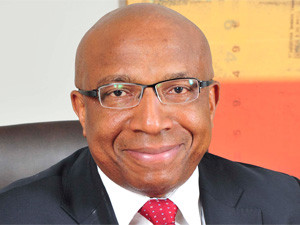
Fixed-line operator Telkom today announced the appointment Sipho Maseko as group CEO and executive director of Telkom Group, with effect from 1 April.
In addition, the company announced the appointment of MD of Telkom Business Dr Brian Armstrong as group COO.
"These appointments enable the departure of the incumbent group chief executive officer Nombulelo Moholi at the end of March 2013, following her resignation in November 2012," Telkom says in a statement.
"The appointment of a seasoned executive with telecommunications experience is another building block in Telkom's turnaround process," says Telkom chairman Jabu Mabuza.
Maseko was appointed MD of Vodacom SA and COO of the Vodacom Group in September 2011. He resigned from the position with immediate effect, in June last year, with Vodacom saying at the time that Maseko had decided to leave the company to pursue other interests.
Prior to joining Vodacom, Maseko held the position of CEO of BP Southern Africa, since 2008. Before taking the top spot, Maseko spent about 14 years in several senior executive positions at the local arm of the multinational oil and gas company.
Commenting on his appointment, Maseko said: "Telkom is a great asset for SA and I am privileged to be entrusted with its leadership. I am determined that we'll earn the trust of all our stakeholders the old-fashioned way, by delivering results. Having spoken earlier today to Brian Armstrong, I am delighted that he shares this focus and look forward to working with him."
Moholi resigned 18 months into her tenure as CEO, and will leave the company next month.
Her appointment as CEO of the country's biggest fixed-line operator was announced in March 2011, and she replaced acting head Jeffrey Hedberg, after he decided not to renew his contract. She was the company's fifth CEO in seven years.
Moholi oversaw the sale of the Telkom's Multi-Links business to an associate of former adversary Helios Towers Nigeria, for $10 million (R68 million). She was at the helm when government pulled the plug on a R3.3 billion deal with Korea-based KT Corporation, which would have seen the latter buy a 20% stake in the ailing telecoms group.
Share